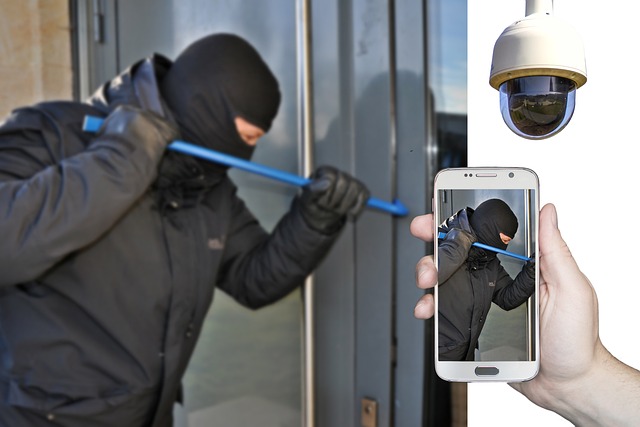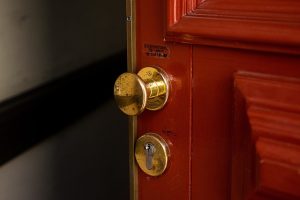Mitigating the Risk of Burglary
Use An Alarm System That You Possess: This is the most self-evident and straightforward precaution, and alarm systems are installed in most contemporary residences. Nevertheless, it never ceases to astonish me that most of my acquaintances affirm that they possess an alarm system yet fail to activate it.
This is entirely illogical. Although all individuals possess a front door lock and ensure it is locked before departing the residence, many still need to engage their alarm system!
A sophisticated intrusion alarm system is installed within my residence. Motion detectors are installed in all areas of the residence, including the garage, and fire alarms are situated in each room.
I inspect the house’s windows and doors before departing, activate the alarm system, and secure the door upon returning. This requires roughly one minute of my time, but it could be better spent.
Configure the alarm system for the evening.
A significant number of intrusions occur during the night. A burglar typically breaks in while the homeowners are asleep upstairs and proceeds to steal everything he can locate downstairs.
Unbeknownst to you, most burglar detectors have a night mode for two-story homes. This can be configured before bedtime so that all sensors on the first floor remain active while those on the upper floor remain inert.
In the event of a downstairs intrusion by a burglar, the alarm will sound, disrupting the nocturnal serenity. We hope the intruder hastens out of the building before you can even rise.
Each evening before retiring, I conduct a cursory examination of the dwelling, including every door and window. After setting the alarm, I retire to bed feeling content.
Most intruders are incredibly timid. They have no desire to interact with others and will flee in the event of disturbance. The use of violence is reserved for last resort.
However, there is a minority of burglars (likely an extreme minority) who will gain entry to your home by force and overpower you after merely knocking on your front door. Only answer a knocking door if you are confident about its identity.
Installing a peephole would allow you to observe an individual before unlocking the door. Although peepholes are incredibly inexpensive and simple to install, you may consider investing more in a camera and CCTV system.
Alternatively, one may utilize an upstairs window to communicate with the caller securely.
CCTV
Before recent years, Close Circuit Television was prohibitively expensive; however, the price has steadily decreased and is now quite affordable. Additionally, the emergence of the internet has enabled the real-time transmission of camera images to a mobile device.
For security applications, the possibilities are virtually limitless. A straightforward CCTV camera installed at the front door and connected to a monitor inside the residence is relatively uncomplicated.
A more comprehensive system might include surveillance cameras throughout the house and garden. You should conduct an internet search for “CCTV security systems” instead of enumerating every possible option here.
Outdoor illumination
Burglars are more at ease in dimly lit areas with a lower probability of being detected. A multitude of alternatives exist concerning security illumination.
One can install lights that activate solely in response to motion detection or autonomously turn on in the dark and remain lit throughout the night.
An additional alternative is a timer that only turns the light on late at night and off in the early morning.
Modern energy-efficient illumination results in shallow electricity usage, and a small amount of outdoor light is frequently beneficial.
Spare keys should not be kept near the front entrance.
Burglars may attempt to enter your residence by utilizing your keys. While this may seem self-evident, there have been instances in which intruders have inserted a fishing rod and a magnet through the door’s letterbox to take the keys from a keyboard.
Maintaining the keys in a secluded location but not close to the front entrance is advisable.
Window latches that are robust.
While modern windows typically feature adequate security latches, it may be prudent to fortify older windows further. At night, ensure that all windows are secured and closed.
An intruder might shatter a pane of glass and then manipulate the window latch by reaching inside with their hand. A locked window serves as an additional deterrent, increasing the difficulty for an aspiring intruder.
Consideration must be given to potential fire evacuation procedures if the windows are locked at night.
If a specific window serves as the sole exit in certain circumstances, it is not advisable to secure it completely.
Opening the window is imperative to exit the premises during a fire immediately.
Avoid installing a scaffold in the garden.
Typically, intruders find it challenging to enter a residence through an upper window; however, providing them with a ladder will make the process more straightforward.
Avoid leaving a ladder readily accessible in your garden. Ensure that any ladders you possess are stored securely hidden away in your garage.
Thorn bushes situated beneath a window
Depending on the design of your garden, a thorn bush may be planted precisely beneath your window on the wall. Certain briars have exceptionally sharp, resilient spines.
You may prune it as it develops until it reaches a precise placement beneath the window and spans the entire length of the windowsill.
A thick, mature thorn shrub is an almost insurmountable obstacle, even for a thief donning heavy gloves. This is merely one of several incremental actions that have the potential to yield significant outcomes.
Precious objects
Even though you should make every effort to secure the exterior of your home, there is more that you can do. In the event of a break-in, you must ensure that it is difficult for the intruder to locate your valuables.
The initial straightforward solution is to possess no valuables. The absence of assets significantly reduces the likelihood of sustaining substantial damage during a burglary.
If you possess valuable small goods, conceal them. You can fit them into a very unassuming old cardboard box, but you’ll have to be extra cautious not to discard them during the cleanout!
A safe is an alternative but must be substantial, weighty, or secured to the floor with bolts to prevent movement.
Utilizing valuables as a lure
To avoid departing empty-handed, an intruder will try to enter your residence. Thus, stock your residence with items that would appear enticing to an intruder.
Remember that most trespassers will only steal what they can carry at once. A burglar arriving with a moving van and shelling out the entire house is improbable but not impossible to imagine.
The following are some highly visible dummies that you should maintain around the house:
Diminutive security is safe.
It should contain an item that readily rattles. Attempt to fill a cookie container with a brick. Ensure the safe is substantial but not excessively so (30–50 kg).
Confirm that the safe produces a faint jangling sound when the cookie tin containing the brick inside moves. A burglar will almost certainly find this to be irresistible.
A jewellery case was placed on the makeup table. Ensure you stuff it with inexpensive costume jewellery of exceptional quality. Even better, place in the box genuine secondhand jewellery that has no personal significance.
An image.
Take a photograph of a valuable image, duplicate it, and display it on the wall. This can be extremely useful in a location that receives much sunlight. Since sunlight is highly detrimental to photographs, it is far preferable to display a copy on the wall rather than the original.
Certain antiquities.
Burglars adore antiques of superior quality; however, the price fluctuates substantially, making a burglar unable to be specific. Purchase antiquated silver on eBay or a pricey, non-functioning timepiece. Even if a burglar obtains these items, your losses will not be significant.
Perform a security inspection.
After you have taken into account the aforementioned apparent factors, you should then inspect your belongings. Place a piece of paper and a pen outside your residence. Suppose that you are an intruder.
You are in a financial bind and have reason to believe this residence could serve as a lucrative target for a break-in. You intend to burst in. Consider various potential scenarios in which this may transpire. Record the specifics of each item in a notepad.
Subsequently, examine each potentiality and contemplate how it might be modified to be less appealing and more challenging.
After completing the exterior inspection, examine the interior and reflect again on what you would prefer if you were a burglar.
Reconsider what precautions you could implement to make life more difficult for a burglar.
The information above has provided you with some insight into self-protective measures. Some additional factors to contemplate include the following:
You reside in a safe community with a low crime rate.
Remember, if you are purchasing a property, it is preferable to do so in a desirable neighbourhood instead of an undesirable one. A residence in a desirable neighbourhood will likely cost more to purchase, but the additional cost may be justified.
Establish rapport with your neighbours.
Maintain a cordial relationship with your neighbours at all times. They are considerably more likely to observe anything unusual about your property if they know you.
Maintain meticulous records of all valuable items.
It is exceedingly unlikely that the police will recover the stolen property if you are the victim of a break-in, particularly if you cannot furnish substantial evidence regarding the stolen items.
If you can provide the police with complete information, that is preferable to withholding any details.
It is doubtful that you will ever be able to retrieve your stolen property.
The post Mitigating the Risk of Burglary appeared first on Survivalbite.
The post Mitigating the Risk of Burglary appeared first on https://gqcentral.co.uk




Comments are closed